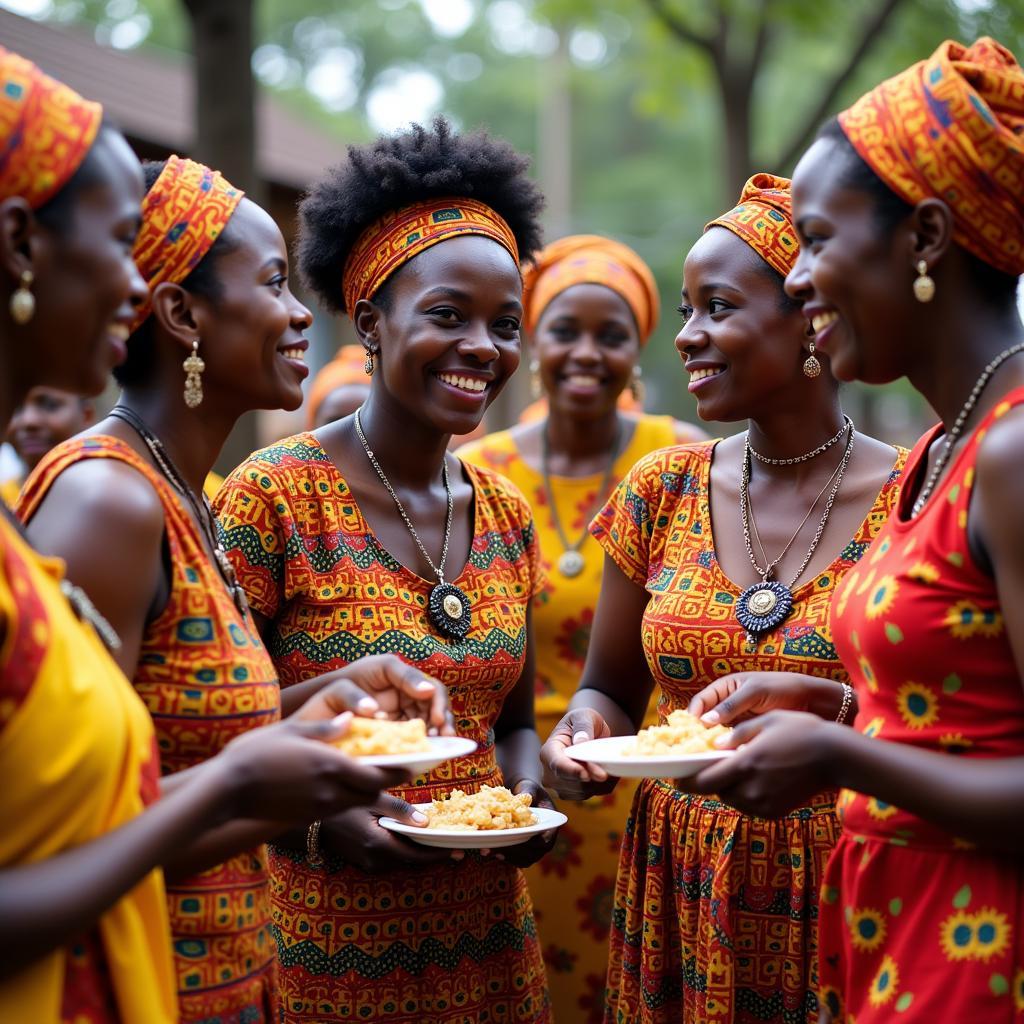African Borders Before Colonization: A Complex Tapestry
Before European colonization reshaped the map of Africa, the continent was a mosaic of dynamic and evolving borders. Understanding “African Borders Before Colonization” requires moving beyond the imposed colonial boundaries and delving into a complex history of fluid territories, shifting alliances, and diverse forms of governance. This period showcases the dynamism of African societies and challenges the simplistic narrative of a continent without history. Let’s explore this fascinating history.
Political Organization and Shifting Territories
Pre-colonial Africa was not a static entity. Kingdoms rose and fell, empires expanded and contracted, and communities migrated and interacted. This fluidity meant that “african borders before colonization” were often less defined lines on a map and more zones of influence, negotiated relationships, and shared resources. Some areas had clearly defined kingdoms with established systems of governance, such as the Ashanti Empire in present-day Ghana, the Kingdom of Kongo, or the Zulu Kingdom. These kingdoms often had complex diplomatic relationships with their neighbors, including trade agreements, military alliances, and even intermarriage.
Other regions were characterized by decentralized systems of governance, with power distributed among local chiefs, village elders, or lineage groups. In these areas, boundaries were often more fluid, based on kinship ties, resource access, and seasonal migration patterns. For example, pastoralist communities moved their herds across vast distances, negotiating grazing rights and navigating relationships with other groups they encountered.
Trade, Migration, and Cultural Exchange
Trade routes crisscrossed the continent, connecting different communities and facilitating the exchange of goods, ideas, and cultural practices. These trade networks played a crucial role in shaping pre-colonial African societies, influencing not only economic development but also political alliances and cultural identities. For example, the trans-Saharan trade routes connected North Africa with West Africa, fostering the spread of Islam and facilitating the growth of powerful empires like Ghana, Mali, and Songhai. These trade networks also contributed to the development of shared cultural practices, artistic styles, and religious beliefs. The exchange of goods and ideas further blurred the rigid concept of fixed territorial boundaries, demonstrating the interconnectedness of African societies.
What were the main drivers of boundary changes in pre-colonial Africa?
Several factors contributed to the shifting nature of boundaries in pre-colonial Africa. These include:
- Conquest and Expansion: Powerful kingdoms and empires often expanded their territories through military conquest, leading to shifts in political control and territorial boundaries.
- Migration and Settlement: The movement of people, whether due to environmental changes, resource scarcity, or conflict, resulted in new settlements and the re-negotiation of territorial boundaries.
- Trade and Diplomacy: Trade networks and diplomatic relations played a crucial role in shaping alliances and influencing territorial control. Agreements between different groups could lead to the establishment of shared territories or the recognition of spheres of influence.
- Environmental Factors: Changes in climate, droughts, or other environmental events could lead to migrations and shifts in territorial boundaries as communities sought access to essential resources.
The study of “african borders before colonization” challenges the colonial narrative of a continent without history. It reveals a vibrant tapestry of complex societies, dynamic relationships, and diverse forms of governance.
The Impact of Colonization
The imposition of colonial borders in the late 19th and early 20th centuries dramatically reshaped the political landscape of Africa. These arbitrary boundaries disregarded existing political structures, cultural identities, and historical relationships, creating a legacy of conflict and division that continues to impact the continent today. Understanding the pre-colonial history of African borders is crucial for challenging the artificiality of colonial boundaries and recognizing the richness and complexity of African history. You can find more information about African countries and their colonizers.
Conclusion
“African borders before colonization” were far more nuanced and complex than often portrayed. They reflected the dynamic nature of African societies, characterized by shifting political alliances, vibrant trade networks, and diverse forms of governance. This history reminds us of the importance of moving beyond colonial narratives and engaging with the rich tapestry of African history. For more information about the African continent, see 10 Facts About African Continent. You can also learn more about the African Court. For those interested in learning about the African continent in Hindi, we have resources available on About African Continent in Hindi.
FAQ
- Were there any maps of Africa before colonization? Yes, though they differed greatly from modern maps, often reflecting local knowledge and perspectives rather than precise geographical measurements.
- How did pre-colonial Africans define their territories? Through a combination of factors, including kinship ties, political alliances, resource control, and cultural practices.
- What was the role of trade in shaping pre-colonial borders? Trade routes facilitated the exchange of goods, ideas, and cultural practices, influencing political alliances and shaping territorial boundaries.
- Why is it important to understand pre-colonial African borders? It challenges colonial narratives, highlights the complexity of African history, and provides a more accurate understanding of the continent’s past.
- How did colonization impact African borders? Colonial powers imposed arbitrary boundaries that disregarded existing political structures and cultural identities, creating a legacy of conflict and division.
- What were some of the major pre-colonial kingdoms in Africa? The Ashanti Empire, the Kingdom of Kongo, the Zulu Kingdom, the Mali Empire, and the Songhai Empire, among many others.
- How did pre-colonial African societies interact with each other? Through trade, diplomacy, warfare, migration, and cultural exchange.
Need More Help?
Do you have more questions about African history, culture, or pre-colonial societies? Are there other aspects of African Life you’d like to explore? For further assistance, please contact us:
Phone: +255768904061
Email: kaka.mag@gmail.com
Address: Mbarali DC Mawindi, Kangaga, Tanzania.
Our customer service team is available 24/7.



